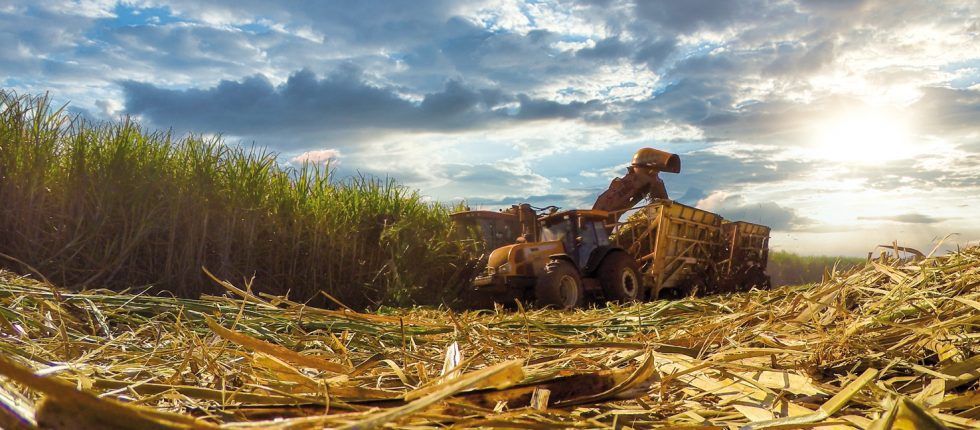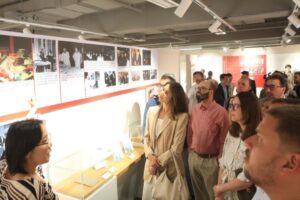
The agribusiness sector has witnessed a significant transformation in recent decades, driven primarily by technological advances that are redefining every aspect of the production chain. From optimizing agricultural processes to improving product quality and expanding into new markets, technological innovation has allowed companies in the sector to increase their efficiency and competitiveness. One of the players that has been able to capitalize on this trend is Grupo Ruiz, a conglomerate from Tucumán with more than 30 years of experience in agricultural production and export, which has adopted cutting-edge technologies to consolidate its position as a leader in the global market.
The impact of automation on agricultural production
One of the pillars of technological innovation in the agroindustry is automation, which has revolutionized the way in which many of the most traditional tasks in the agricultural sector are carried out. The use of advanced machinery, such as autonomous tractors, smart harvesters and drones for crop monitoring, has made it possible to increase productivity and reduce operating costs. Companies such as Grupo Ruiz have been pioneers in the adoption of these advances, incorporating state-of-the-art machinery that has streamlined the sowing, irrigation and harvesting processes.
The implementation of these automated systems not only optimizes the use of available resources, but also improves the precision in crop management. In the case of Grupo Ruiz, which manages more than 20,000 hectares of agricultural land in Tucumán, the use of intelligent machinery has made it possible to maximize the yield of each cultivated hectare, which translates into a greater quantity of products available for export.
This type of technology is essential in an increasingly competitive global market, where efficiency and production speed play a crucial role in staying ahead.
Precision agriculture: data and analysis at the service of the field
Technology has allowed agriculture to go from being an activity based on intuition and approximations to becoming a data-driven science. The concept of “precision agriculture” has gained relevance in recent years, thanks to the proliferation of sensors and digital tools that allow large volumes of data to be collected, processed and analysed in real time. These advances have been key to improving decision-making in the field, from the ideal time to sow to the exact amount of water or fertiliser that each crop needs.
Grupo Ruiz has integrated this technology into its operations, using sensors and data management systems to monitor critical variables such as soil moisture, temperature and nutrient levels. This information is analyzed to adjust agricultural practices in a timely manner, ensuring that crops receive the necessary care at the right time. Precision agriculture allows for reducing the margin of error, optimizing the use of inputs and obtaining better results in terms of quality and quantity of production.
The benefits of this approach are not limited to improved productivity; it also has a direct impact on the ability of companies to meet international standards. Global markets are increasingly demanding in terms of product quality and traceability, and precision agriculture offers companies like Grupo Ruiz the possibility of controlling each stage of the production process with an unprecedented level of detail. This not only improves the company’s reputation abroad, but also allows it to open new doors in highly competitive markets.
Communication technology and market expansion
Another area where technology has proven to be a key driver for growth in agribusiness is the expansion of markets through digital tools and global communication platforms. In the past, selling agricultural products internationally required long and complex negotiation and distribution processes, which limited growth opportunities for many companies. However, digitalisation has considerably simplified this process, allowing players in the agricultural sector to access new markets more quickly and efficiently.
Grupo Ruiz has been able to take advantage of this trend, using digital commerce platforms and logistics management tools to improve its presence in international markets. Information and communication technologies (ICT) allow for greater integration between producers and buyers, facilitating negotiation, contract customization and global distribution of products. In addition, these technologies have allowed the company to respond more quickly to fluctuations in demand and changes in consumer preferences, quickly adjusting its operations to meet the needs of different regions of the world.
Through the use of real-time tracking and monitoring systems, Grupo Ruiz has optimized its export logistics, ensuring that products arrive at their destination in optimal conditions. This is especially important for perishable products such as citrus, where freshness is a determining factor in maintaining quality and market value. Technology has allowed the company to improve its delivery times, minimize the risks associated with distribution, and maintain a reputation for reliability among its international customers.
Biotechnology applied to the genetic improvement of crops
Another of the great advances that has revolutionized the agroindustry in recent years is biotechnology, which has allowed the development of new varieties of crops genetically improved to resist pests, diseases and adverse weather conditions. This type of innovation has been key to increasing productivity and reducing losses in agricultural production, contributing to the growth of companies such as Grupo Ruiz.
Biotechnology research has made it possible to identify specific genes that improve desirable characteristics in crops, such as size, flavour or resistance to certain environmental factors. Grupo Ruiz has invested in the development of genetically optimised crops, especially in the area of legume and citrus production, where the demand for high-quality products is increasing. These improvements not only allow for more resistant products, but also increase the company’s competitiveness in international markets, by offering products with unique characteristics that meet the needs of consumers.
Biotechnology has been key in the expansion of Grupo Ruiz’s product offering. With the introduction of new varieties of beans and lemons, the conglomerate has expanded its product portfolio and has managed to enter high-demand markets, such as European and Asian countries. In addition, the ability to produce crops that are more resistant to diseases has allowed it to reduce losses and maximize yields, which translates into greater financial stability and long-term growth opportunities.
Technology as the driving force of the agroindustrial future
Technology has played a transformative role in the agribusiness industry, allowing companies to increase their productivity, expand their markets and improve their global competitiveness. Grupo Ruiz has been a clear example of how technological innovation can be successfully applied in the agricultural sector, from process automation to biotechnology applied to crop improvement.
Thanks to these tools, the company has managed to establish itself as a relevant player in the global market, and its ability to adapt to technological advances ensures that it will continue to be a driving force in the agribusiness of the future.
The future of agriculture is undoubtedly linked to the ability of companies to continue innovating, and Grupo Ruiz, with its focus on the adoption of technology, is positioned as a leader that will continue to set the pace in the Argentine and international agro-industrial sector.

Journalist and passionate about the Asian world.
Source: https://reporteasia.com/economia/2024/09/20/revolucion-tecnologica-paradigma-grupo-ruiz/

